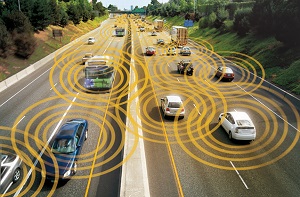LTE is bringing the biggest changes to the connected car market, creating new technologies and applications, a conference has heard.
The Cambridge Wireless event, which was held in Norwich, UK, yesterday, was the first following its creation of a special interest group (SIG) into the sector.
Martin Green, Advanced Technology Planning Manager at Visteon Engineering Services, said the sector was facing increasing challenges about the myriad of ways a car can connect. He said: “What was a simple journey from A to B is now becoming a complex sequence of handovers, registering on different networks with the associated payment and privacy issues.”
Among the speakers were executives from Telefónica, Strategy Analytics and the British Government. Roger C. Lanctot, Associate Director in the Global Automotive Practice for Strategy Analytics, said there was a change in the type of mobile technology being used in the connected car sector.
He commented: “LTE is the greatest source of change in value proposition and user experience for the customer and car maker. Bluetooth, Wi-Fi, NFC and satellite connectivity are all playing a role, but LTE deployment is the biggest wave sweeping the connected car, creating opportunities for new technologies and applications.”
Andrew Ashby, who is responsible for new business development at Plextek Consulting, said the changing face of the connected car sector could bring “unprecedented social change” to transport systems.
He commented: “Much of the implementation of integrated and autonomous transport communications will rely on wireless systems and the community we are now building with this new SIG is ideally placed to draw on a wealth of relevant experience from other industry sectors and to foster and harness new innovation.”
Earlier this year, automotive technology consultants SBD said global shipments of cars with embedded mobile technology will hit 36 million in 2018, with Europe accounting for 49 percent of the market. It predicted the SIM technology market will be worth €39 billion by 2018.



